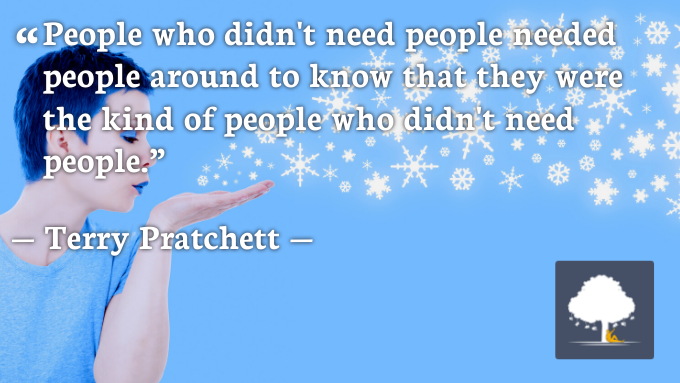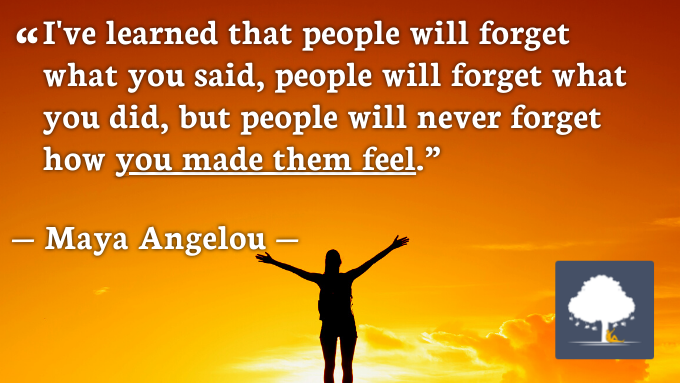Hey, you!
Have you ever felt like nobody gets you or your ideas? Did you fail an important presentation? Were you disappointed when your close ones couldn’t grasp what is important to you?
No?!
Well, I find it hard to believe you. All of us feel like that sometimes. Humans of all creatures are masters of inflicting emotional damage to other humans.
We create norms for communication in different contexts for good reasons.
Then we forget why we made the norms in the first place and act blindly on them. We put labels on what is: “professional”, “romantic”, “trendy”, “credible”, “a good friend” and what is not.
Then, someone always gets hurt. Why? They complied with the norms while trying to express themselves and were misunderstood.
That’s very offensive!
We play by the rules and get punished for it! The hell?!
It happens – all the time. So, today I want to talk about emotional honesty. It’s an excellent concept to help you communicate vital information for others to get you.
It’s also a powerful tool to convince people. You need emotional honesty to multiply and keep the attention on your ideas.
TL;DR:
Breaking the norms once will help you get the attention once.
Do that consistently, and you become an outsider. Or that person who everyone dismisses: “Well, he’s like that sometimes, nobody gets it, but we got used to it.”
So to help people get you, you need to be emotionally honest. But how to do this and still be socially acceptable?
Simple:
- Stop playing it cool.
- Stop justifying your feelings with facts.
Let’s see how those play out in reality from my opinionated and emotionally honest point of view.
Stop playing it cool.
A colleague once said:
“For God’s sake, Diana, just yell at me. Giving me that look with that tone is scarier than any emotional outburst you can throw at me”.
Well, that was a long time ago; he made a mistake. I tried to react professionally and talk about options. The person in front of me could not focus on those. While trying to hide my emotions, I gave hints that I felt angrier than I was. He didn’t get me, and I didn’t help him. Then we spent too much time sorting our emotions out instead of fixing the problem faster.
You might think that playing it cool is for kids in high school. Well, I have news for you.
We created a lot of norms where either you are “playing it cool,” or you’re stupid, co-dependent, or incompetent. We just gave our criteria “adult” names to avoid facing our childish behavior.
In business, we have the so-called “poker face.” Or “the CEO poker face,” which is my favorite absurd.
In relationships, we play mysterious and hard to get to keep our partner’s interest in us.
The list goes on and on, and I have more bad news for you. If you play it cool, others will mirror your behavior. Miscommunication and emotional damage are guaranteed.

So, stop wasting your energy on being indifferent. Focus on having productive and meaningful communication. Be emotionally honest.
But how?
Stop putting on your “cool” mask. Start thinking about how to handle the intensity of your emotions. Express your feelings without stressing others too much.
Whatever you do to try to hide them, your emotions will show. Most of the messages we send when we speak are non-verbal. Words are complicated enough. Stop confusing others by aiming to be a good actor. Make sure that what you’re saying matches how you feel about it.
Intense emotions can be tiring but hiding them does not make it less tiring.
Where the intensity is coming from is the vital part here. Knowing that is more important than the consequences of showing your emotions.
Try reframing what you perceive as the reasons for the intensity of your emotions.
If it does not help, go for a walk. Disconnect yourself, and postpone the conversation. If the power of your feelings is too strong, make sure you know why they are so intense.
And then communicate. It does not have to be a one-hour monologue of why and how you feel. Actually, it should be less than a min. Tell something like: “Well, because of this, it did not feel that great/it felt terrible. Now, let’s focus on…”
As simple as that. It’s way cooler than any mask you can put on, and it will help the others to understand you better.
The first step to emotional honesty is to express your feelings.
The question is, is this enough? Well, no. If you try to convince people, you need to make one more step in the direction of emotional honesty.
Stop justifying your feelings with facts.
I love Taylor Swift!
This is an immediate controversy with most of my preferences. I usually cringe around any romance slightly displayed in any medium that I consume.
Two things happen when I try to justify this atypical preference with the number of albums Taylor Swift sold. People who don’t like her music could not care less. People who like her music switch the topic. Why?
Because I am not emotionally honest.
I love Taylor Swift because her music uplifts me and brings me a good mood. I don’t care at all about the volume of sales she made.

Telling more facts than you need often kills the idea’s appeal.
This is valid if you’re afraid that the idea is not plausible enough and you have no right to feel as you feel about it.
People will more or less sense your lack of confidence. Then they lose interest in the idea itself. Why would they trust what you say if you don’t trust your feelings?
Or worse, they will throw other facts at you that counter the facts you presented. In the end, everybody wasted their time. The exchange becomes about who can google better, and everyone forgets about the experience you wanted to communicate.
Facts are essential for you to challenge your biases, perceptions, and conclusions. You need to rely on facts when making your decisions. You need to challenge your opinion with facts as often as you can.
Just don’t use them to boost your courage or compensate for your lack of confidence in your feelings.
You don’t have to build credibility for your emotions, especially when telling a story about your own experience.
Cross-check your facts when you’re making an important decision or compelling others to do so.
I am saying, “be emotionally honest,” not “be irrational” after all. There is a big difference between the two.
In conclusion
Emotional honesty is complex. We created too many expectations around “proper” and “improper” ways of expressing ourselves.
But you know what?
We need more authenticity. Now, the whole business community cries for authenticity in leadership. More and more societal role models are winning us with compelling and emotionally honest arguments.
Emotional honesty is the way to create meaningful relationships. Solid facts are the way to make informed decisions.
It shouldn’t be so hard for us to imagine they can co-exist in our epic lives.
Stay happy and honest, everyone,
Diana









